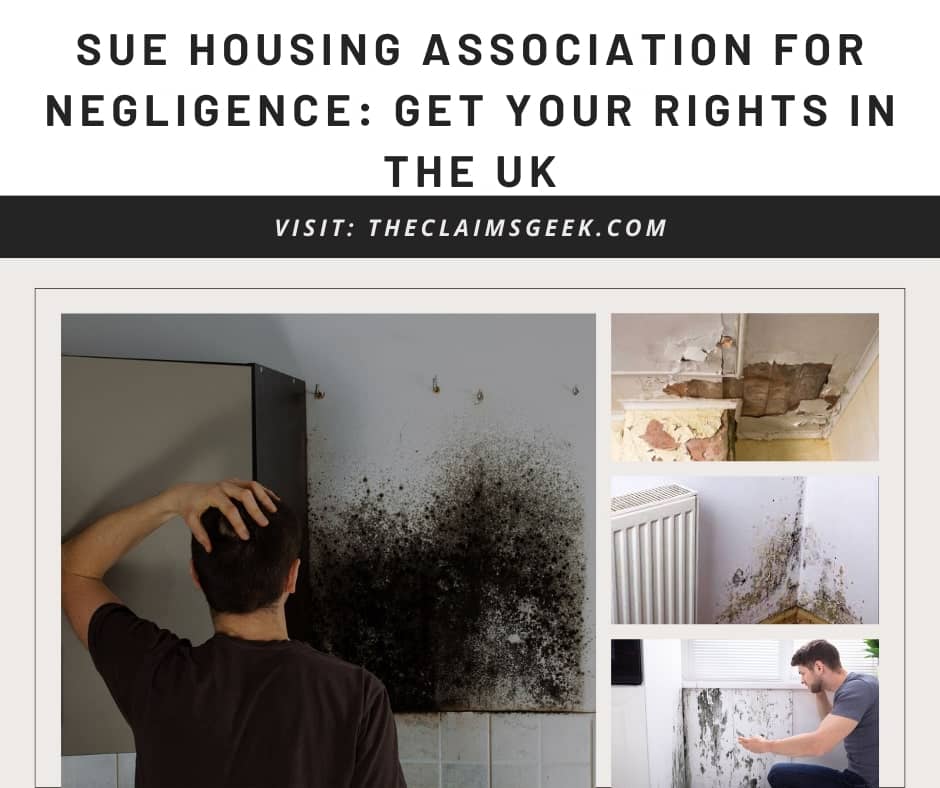In the UK, housing associations play a key role in providing affordable housing. When housing associations don’t meet their obligations, it’s important to understand your rights. If you’re wondering, “Can I sue the housing association for negligence?” and seeking compensation for housing disrepair claims, this guide will help you navigate the legal landscape.
Why Sue a Housing Association for Negligence?
Sue a housing association for negligence shows up in several ways. It can be poor maintenance or not following safety rules. This negligence can lead to significant discomfort and even health hazards for residents. When these issues arise, it’s vital to hold the responsible parties accountable. If you’re pondering, “How much compensation can you get for housing disrepair claims?” the legal process outlined below can provide answers.
How much compensation for housing disrepair is a common question. You should be aware of your rights in determining the potential compensation you can get.
Identifying Negligence
Recognizing negligence is the first step. Dampness, poor heating, or safety risks are the ones that are not fixed by the association. Documenting these problems is crucial for any legal proceedings. Proper documentation is the key, if you’re wondering about Unfair treatment by housing association UK.
Legal Process of Suing
Suing a housing association involves several steps. You should seek legal advice to understand the strength of your case on Housing disrepair. Following this, you may need to send a formal complaint to the housing association. If unresolved, legal action through the courts may be necessary. Wondering, “Legal action against housing association?”
Claiming compensation from housing association is a viable option in negligence cases. Your legal representative can guide you on the process and potential outcomes.
Sue Housing Association for Negligence: The Impact
The impact of winning such a case can be significant. Winning such a case can led to two things:
- First, it can bring money to those affected.
- Second, it encourages housing groups to keep high standards.
How much can I sue my landlord for emotional distress UK? is a question tied to the emotional toll of housing issues. legal advice is crucial in emotional distress and should be considered in a lawsuit.
You can learn how to get tenant compensation for inconvenience in the UK.
Navigating the Legal Landscape
Understanding the legal landscape is essential when considering a lawsuit. UK law has clear rules for negligence cases. A skilled lawyer can guide you through these. You should be aware that some lawyers offer ‘no win, no fee’ arrangements, which can mitigate risks.
Choosing the Right Lawyer
Selecting a legal representative experienced in housing law is crucial. They can offer guidance on the feasibility of your case and the likely outcomes. If you’re contemplating a lawsuit, professional advice is key.
The Role of Evidence
In these cases, evidence is king. This involves collecting health reports and records of housing association issues. A well-documented case strengthens your position.

Sue Housing Association for Negligence: A Step-by-Step Guide
- Keep a record of all issues and attempts to resolve them with the housing association.
- Seek Legal Advice: Consult a solicitor to understand your legal options.
- Prepare Your Case: Gather all necessary evidence and documentation.
- Legal Action: If necessary, proceed with a lawsuit.
What to Expect from a Lawsuit
A lawsuit can be a lengthy process. Understanding the timeline and potential outcomes is important for managing expectations. Results can vary. You might get money, or the court might tell the housing group to fix the problems. In some cases, it may also lead to policy changes within the housing sector.
Your Rights and Responsibilities
Understanding both your rights and responsibilities is crucial. You have the right to a safe, well-kept home. But as a tenant, you also have duties.
Conclusion
Suing a housing association for negligence is a significant step. It’s about asserting your rights and ensuring safe living conditions. If you’re facing such issues, remember, you’re not alone. Seek professional advice and take the necessary steps to protect your interests.
